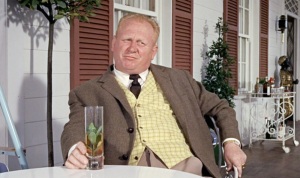That is the question. But sometimes I wonder if it isn’t “To cliche or not to cliche?” Should an author avoid cliches at all costs or just use them sparingly? Or should caution be thrown to the (cliched) wind and as many of the colorful little devils be used as possible? It seems to me that some of the most popular authors I’ve read use them without any regard for whether they are apropos or not. In fact, it can sometimes seem like they actively set up scenes and dialog to use a good (or bad) cliche.
And by cliches I actually mean cliched expressions, not circumstances. I don’t judge authors harshly for using cliched plots, characters or settings. Some of those are almost unavoidable. An author generally has to use one or two here and there just to make a cohesive and attractive plot. Full disclosure, I’m a sucker for a good villain-revealing-his-master-plan scene. I cringe every time I read one of these, but my attention is also absolutely rapt. If the author did her job and kept me guessing about what the bad guys are up to, then I don’t care how stupid it is that the hero is on the receiving end of a monologue instead of a shotgun. Well, okay – maybe I care a little bit. But still, I’m willing to forgive a lot in situations of cliched circumstance.

“No, Mr. Bond. Instead of torturing you for information, I’ll serve you mint juleps and give you information.”
But cliched expressions? I can’t stand them. If I find even one in a whole book, I’m tempted to swipe it off my kindle while exclaiming “TRASH! FILTH! THE DIARY OF A FOURTEEN YEAR OLD BOY!” And yet it seems many people either don’t mind these or perhaps even like them.
I wonder if it’s the comfort level they provide. That’s about the only thing I can acknowledge is a positive aspect of using a cliche. It provides the reader with a solid frame of reference for what’s going in the book. If I tell you that a character is “in the pink of health” and “full of piss and vinegar” you instantly know exactly what I mean – assuming you’re fluent in colloquial English.
But, if I tell you that Han Solo told Luke “You look strong enough to pull the ears off a gundark” you’d have no idea what the hell I was talking about. Which is a shame. That’s an expression that never really took off. Okay, that’s a bad example. Han and Luke and the Star Wars universe are fairly well known, so you likely know that means the same as the “pink of health/piss and vinegar” thing.
But, here’s the thing. Didn’t you know what Han was saying the first time you watched Empire Strikes Back? Did you need anyone to explain it to you? Didn’t it even immerse you further into the Star Wars universe because it was an expression that had it’s own flavor while at the same time sounding familiar?
That’s basically where I’m at with cliches. If you’re writing a story and you feel like you need to use one, then I feel like the best thing to do is take a familiar one and add your own spin to it. Unless, of course, you’re narrator is a lazy and unimaginative speaker and is supposed to rely heavily on cliches to express himself. Or, if not the narrator, then the speaking character is one who has a nervous habit of using cliches. That’s fine. I get that. Although I would recommend not using a narrator who is likely to bore the hell out of your audience. You can only get away with that if your name is William Faulkner.
But in the course of normal narrative, I feel cliches are just too distracting. I’m instantly taken out of the story if I feel they don’t quite fit and if they are used without regard to character or narrative voice, then they definitely don’t fit.
But I don’t know. I’d like to be a popular author someday. I’d like to make a lot of money writing. So if using more cliches is the answer, maybe I should do it. Obviously, only in stories set in modern/near future. Fantasy stories that use modern cliches are never successful. I try to avoid them in the Grant Scotland novels, but I concede to little ones that might include curses or expletives like “damn” and “hell” because fantasy novels that replace those words always seem to me like they’re trying a little too hard.
But how about you? As a reader, do cliches bother you? Do the expressions bother you more than the situations? Is it the amount or the appropriateness?
——————————————————————————————————-
Hope everyone is having a good summer! Hot enough to boil eggs, amiright?
Want to see my author profile and my books on Amazon? Check it out!
Want to see more posts and tour the blog? Go to the Home Page!

